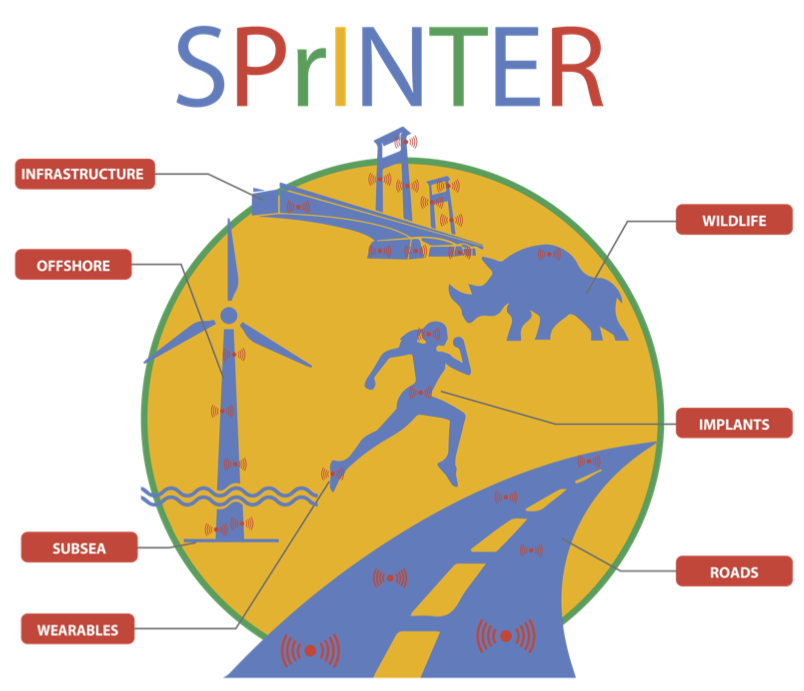SPrINTER
SPrINTER
The SPrINTER project will create the foundation of a radically new technology for batteryless intermittent computing devices required for a sustainable digital society.
About

Batteryless devices harvest their energy from their environment, e.g., by using a solar cell, scavenging energy from radio waves, or converting thermal or kinetic energy to electricity. These are virtually unlimited sources of power but are not reliable and can only power devices intermittently. Power outages can occur hundreds of times per second, requiring systems that are able to restart their computation once power is again available. Conventional computing devices are not suited for operation with an unreliable power source, and to ensure computational forward progress costly check pointing must be performed.
Achieving a major leap towards spin-based truly intermittent computing devices is only possible if we consider the computational paradigm in union with the new hardware technology. In the SPrINTER project, we have identified intermittent computing (the paradigm) of nanomagnet ensembles (the technology) as a potentially disruptive solution. Investigating the full potential of the envisioned system requires an interdisciplinary approach that leverages the synergies between the hardware technology and the computational paradigm. The SRrINTER team is ideally situated to address the complete problem, with members having the necessary expertise to investigate each of the fundamental properties of the envisioned system.
News
- Social Media icon
-
Erik Folven Professor
+4794437094 erik.folven@ntnu.no Department of Electronic Systems -
Magnus Själander Professor and Head of the Computing Unit
magnus.sjalander@ntnu.no Department of Computer Science -
Gunnar Tufte Professor; Deputy Head of Department (Research); Head of the PhD Program in Computer Science
+47-73590356 +4797402478 gunnar.tufte@ntnu.no Department of Computer Science
SPrINTER is partially funded by the Norwegian Research Council (NFR) through their Researcher Project for Technological Convergence Related to Enabling Technologies under the project agreement 331821.
